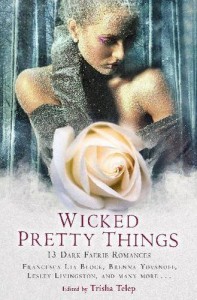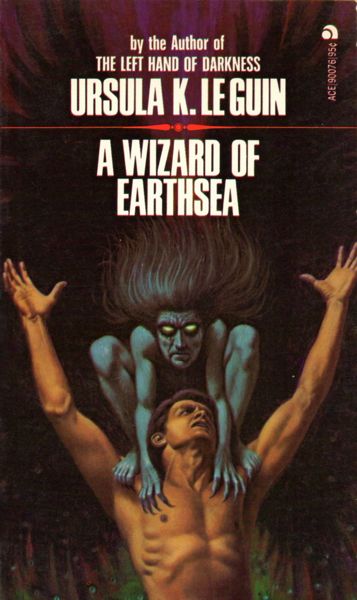Is Editorial Interference an "Author Behavior"?

Roughly a dozen reviews of books edited by Trisha Telep were deleted recently in the purge of reviews about "author behavior" on Goodreads. All of the anthologies had been shelved do-not-read because of the editorial decisions of Telep concerning this anthology. Gather round for this story, friends.
Now, I don't have the lowdown on everything that went on, but the broad strokes are as follows: Jessica Verday submitted a story to Telep which had, for its romantic leads, two boys. Everything was very g-rated in terms of content, but still, boys fell in love. It was rejected on the grounds that Telep thought a YA anthology should be "light on alternative sexuality", and Verday was asked to change one of the boys into a girl. She refused, and pulled out of the anthology. Verday wrote about why she was pulling out of the anthology, which resulted in several other writers pulling out of this anthology. Additionally, a couple writers pulled out of other Telep edited anthologies, and more than a few calls for boycott of all of Telep's work, if not Running Press entirely, went out. More than a few writers spoke publicly. Running Press issued a bizarre statement, somehow standing by both Telep and the LBGT community. Telep did eventually issue real sounding apology, though it was buried in a comment thread and apparently posted under someone else's account. Running Press, in an op-ed in Publisher's Weekly, wrote a nasty, inaccurate hatchet job of Verday, presumably to get her blackballed in the industry for being a trouble-maker. Eventually, the anthology was cancelled, presumably because so many people pulled out.
Here's the thing: I see a lot of chickenshit marketing decisions made by editors. from whitewashing to...what is this called? straightwashing?...usually for the usual bullshit marketing reasons that "people racists won't buy a book with a black face on the cover" or "OH NO TEH GAYS". It's out of my hands, they say, and I have to pander to the racist/sexist/homophobic common denominator because otherwise the book won't sell. Also, occasionally, TEH CHILDREN: THINK OF THEM.
And it's a tough call, as a reader, as to how we deal with these chickenshit editorial decisions. I have a collection of editions of the book A Wizard of Earthsea because that book is my heart. Earthsea has a black protagonist, and has, since its publication in the 1968, been whitewashed both in covers and in movie versions, and a lot. The original 1968 Ace paperback depicts a shirtless, well-cut blond man, arms outstretched in a Christ-like pose, with a blue-black beastie hulking on his shoulders. 
In addition to being hideous and dated, this cover turns the main character, Ged, into some kind of blond gym-bunny, when he's specifically described as having black skin in the book.
One could argue that the original cover was just a product of its time, but the whitewashing has persisted for decades. The 1991 Macmillan hardcover is slightly less egregious, at least in terms of art stylings, but Ged's still a white boy. A figure in a blue monk's cloak, or possibly a dress, fights off a shadow being with a staff.
(Or maybe he's a girl? I don't even know what's going on there, given that all of the conflict in the story is emotional.) The 2004 SyFy channel miniseries "Earthsea" - which uses material from the first two Earthsea books -cast Ged as the blond, blue-eyed Shawn Ashmore, in addition to greater sins of adaption.
Or let's take this more current. I was really discouraged by the cover for The Best of All Possible Worlds, which looks to me like a whitewashing. I presume that's the main character, who is, again, specifically described as having dark skin in the text. A white face in close up is superimposed on a blown out white background. It's possible this is just a dark face hyper blown out, in a nod to Kubrickian science fictional style, but it doesn't exactly sit well given that he novel itself addresses race in interesting, clever, and sly ways, very carefully talking about how appearance informs culture and vice versa. I, personally, was able to overlook an editorial decision to get at a book that was so much better and more thoughtful than the cover. 
However, the editorial decisions by Telep, at the very least in this one instance, cut out the other and the sly, straightwashing these stories into the heteronormative usual. Buying this book wouldn't be me overcoming an editorial decision to get at a more interesting content; it would be me buying into a vision of young adult literature that's afraid of "alternative sexuality." (I object to this phrasing.) Not that I can buy this book anyway, but the point stands: there are times when I think editorial tempering is so bad that I don't want anything to do with the book, or the editor in general.
I'm too damn lazy to look this up, but I get the impression that lots of young adult literature is consumed by old adults, and pandering to the prejudices of a bunch of fully formed bigots instead of writing to the forming sexualities of teens, many of whom might be OH NO TEH GAY, is the worst kind of editorial cowardice. I know many people read young adult literature because they are scared of cussing and sex scenes, which I guess is fine as a personal preference, and of course the prim deserve reading material too. (But also kinda fuck those people, btw.) But I'm going to draw the line at coddling pearl-clutchers who can't handle even the idea of gay teens in books for teens, as there was no sexual content in Verday's story.
It is my firm belief that young adult literature should be for young adults, all of them, no exceptions. I do actually read young adult books, and have, mostly by accident, read one book edited by Telep, so this isn't the idle thoughts of someone outside the genre. I thought the one Telep-edited book I read, Clockwork & Corsets, was pretty terrible, so maybe my decision not to read other books edited by Telep isn't what you'd call a hard choice. I honestly don't know if there's been a capitulation on the part of Running Press or Telep since the mess two years ago. There is the one public apology, weird as it is, that seems to be earnest, although there was at least one writer who came forward saying that Telep had asked them to "de-gay" characters before (though anonymously) and it could be a more widespread thing with her editing. I'm not trying to tell you what to do, just give you the information as I see it.
But to bring this back to the review deletions: there is absolutely no good reason that Goodreads should be deleting reviews that mention this controversy. We all have to make choices about how we deal with the editorial decisions surrounding books, and straightwashing and whitewashing are so prevalent in the industry that silencing mention of them is not just foolhardy, but on the wrong side. For example, there's been criticism of the casting of the movie version of Divergent for casting Four as white, when he has been described as biracial by the author, though interestingly, not in the text itself. Or the howling by racists that went up when Rue from Hunger Games was cast as black because, surprise racists!, she was described as black in the text. Let us decide for ourselves with the full knowledge of the situation. We're not idiots or children, and I resent immensely being treated like one.
And Goodreads should also get out of individual people's decisions to boycott an editor or a writer for political reasons, and for reasons that are so inextricably bound in our notions of genre. I doubt very strongly that there would have been even the one apology if there hadn't been significant pressure both from the writers pulling out of this edition, or readers putting their personal boycotts to bear. This anthology would have gone to press, and the bigots would have won. Public mention of this editorial decision is and was vital engagement. Goodreads has absolutely no business getting in the middle of this, silencing readers who have made choices about how they define and engage in a genre. Trisha Telep has one vision of young adult literature, and I reject it. I think erasing gay people from narrative is pretty terrible.
The thing that burns me is Goodreads's continued silence, their lack of a clear definition of "author behavior", and this mulish insistence that what they have in their FAQ is good enough. People keep saying that Goodreads apologized to the 21 users that had their reviews deleted, when what they really apologized for was deleting the reviews without notice. The original 21 were all warned not to repost of any of their reviews, some of which included content exactly like this one here. I take this to mean that I am outside TOS right now, and that mentioning editorial interference is an "author behavior," never mind how asinine that is. Never mind that this book cannot have reviews strictly about its content because it was never published; never mind that all the reviews standing are about this controversy as a result. The more I look into the delete list, the more incoherent and unworkable Goodreads's definition of "author behavior" seems to be.
Goodreads owes us a godamn definition of "author behavior", and they owe us a site-wide announcement. I swear to god I'll keep writing these "author behavior" reviews about the reviews they deleted until they delete me or I get one.
Rise up while you can.
 1
1


